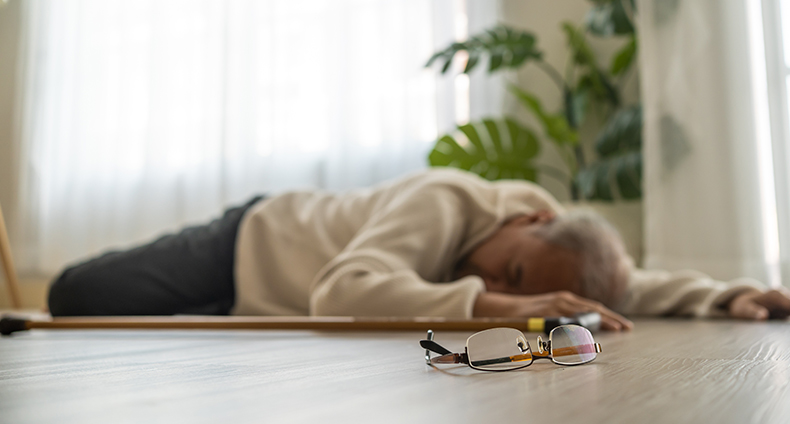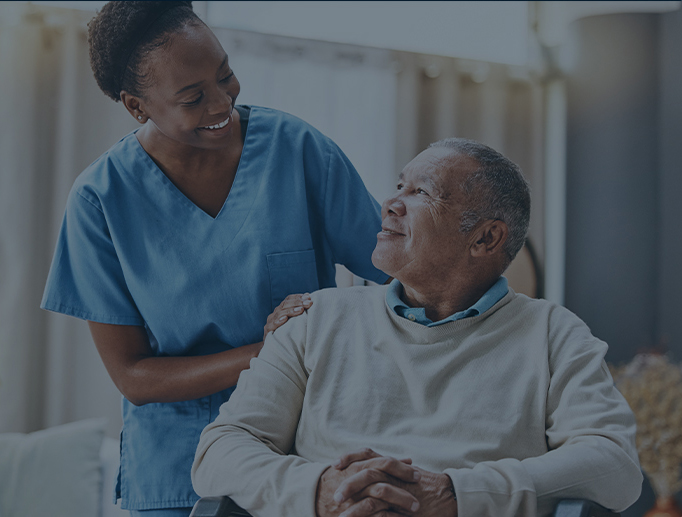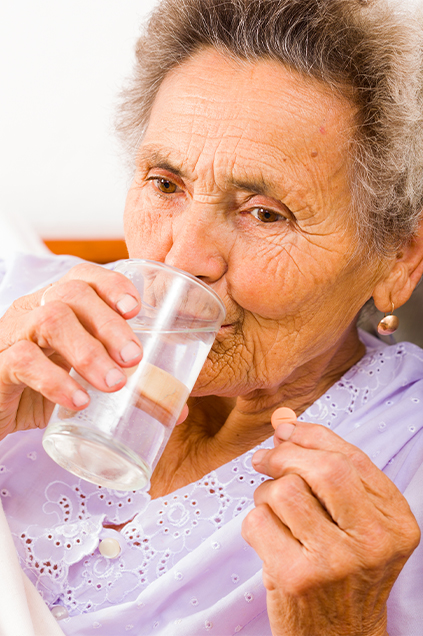
NO RECOVERY NO FEE Free Case Review
Nursing Home Abuse Attorneys Handling Fall Claims
Strong advocacy for seniors who fall in nursing homes
Falls are a leading cause of nursing home injuries. Nursing homes across America should anticipate that seniors have many risks for falling including lack of balance, dementia or Alzheimer’s, broken hips, leg and feet injuries, and many other health disorders. When nursing home residents fall; they’re likely to break or rebreak one of their bones. They may also suffer a traumatic brain injury, spinal cord damage, or death. Many falls cause chronic pain.
At Garcia & Coman, our nursing home abuse and neglect attorneys have been holding nursing homes accountable for not prioritizing the health of their residents for more than 30 years. Our attorneys are skilled at showing how a fall occurred and why the nursing home or nursing home staff should have prevented the fall. We work with orthopedists, neurosurgeons, physical therapists, and other healthcare providers to show what injuries the nursing home resident has, the pain and suffering the injuries from the fall are causing, the treatment required, and the cost of the medical care.
NO RECOVERY NO FEE Free Case Review
How can we help?
- How common are falls in nursing homes?
- Why do falls in nursing homes happen – and why are they preventable?
- What types of injuries do nursing home falls cause?
- What preventive measures should nursing homes implement to prevent falls?
- What damages can a nursing home resident seek after a fall?
- Do you have a nursing home fall attorney near me?

How common are falls in nursing homes?
Data from the US Centers for Disease Control and Prevention (CDC) says that about 17.0% of nursing home residents fall. This percentage only reflects falls that are reported. Many nursing home falls are not reported. Many residents fall more than once.
Why do falls in nursing homes happen – and why are they preventable?
Nursing home residents are regularly admitted because they are too ill to live on their own. Most residents have a high risk of falling. Muscle weakness and gait difficulties are common causes of falls among seniors. Some of the personal health conditions that may contribute to falls include weight issues, seizure disorders like epilepsy, an active fracture, a disease that affects mobility, incontinence, some medications, cognitive difficulties, the use of a cane or walker, and vision difficulties. Nursing homes should anticipate these difficulties and create strategies to address patient health problems that may lead to falls.
Nursing homes may contribute to falls by their residents in many ways including:
- Living spaces that are cluttered
- Beds that are too high off the ground
- Accent rugs
- Wheelchair brakes that don’t work
- Poor lighting
- Uneven floors
- Bed wheels that are not stable
- A lack of handrails
- Too many steps
- Wet floors
- Poorly fitted shoes
- Many other causes

Garcia & Coman has recovered more than $100,000,000 for fall victims. We recently obtained a $5 million award for a resident who sustained multiple falls: Martinez v. San Gabriel Healthcare & Wellness Center, et al., Los Angeles Superior Court Case No. 21STCV40440
What types of injuries do nursing home falls cause?
When nursing home residents fall, the consequences are likely to be quite serious since most residents are already experiencing poor health. According to the Agency for Healthcare Research and Quality (AHRQ), of the nursing home patients who fall, the common injuries include skin tears, bruising, fractures, lacerations/cuts that require stitches, intracranial injuries, dislocations, and deaths.
Our nursing home fall lawyers are skilled at showing why falls in nursing homes were preventable and what types of injuries residents suffer. Common fall injuries include:
- Fractures/broken bones (fractures of the hip are especially common)
- Traumatic brain injuries including concussions
- Spinal cord injuries including paralysis
- Facial and dental trauma
- Internal bleeding
- Cuts, bruises, and lacerations
Head injuries can be particularly difficult to treat because many seniors are already on blood thinners. Nursing home residents who fall may also withdraw from certain activities due to a risk of falling again – which can cause isolation and depression.
What preventive measures should nursing homes implement to prevent falls?
Most nursing home falls are preventable. At Garcia & Coman, we question the nursing home, their staff, and other individuals and companies about the strategies and steps the nursing home did and did not take to prevent falls.
A few fall prevention strategies at nursing homes include:
- Grab bars
- Bedside commodes
- Beds and chairs that are easy to get into
- Mobility aids including canes, walkers, and wheelchairs
- Alarms
- Nightlights
The nursing home should also be prepared to move quickly if a nursing home resident does fall. Prompt medical care can make a difference.
Nursing homes should develop a culture of safety. The AHRQ recommends that nursing homes have:
- A falls nurse coordinator. Among other duties, this professional should focus on residents who are at high risk of falling.
- Falls nursing assistants (2-4). This person “is responsible for inspection of the environment and equipment and acts as a leader among frontline staff in support of the falls nurse.”
- A falls therapist. The falls therapist “helps to assess resident transfer, mobility, and wheelchair seating.”
- A falls engineer. The falls engineer “inspects, repairs and modifies equipment and the environment.”
What damages can a nursing home resident seek after a fall?
Our nursing home fall attorneys represent residents of nursing homes who fall and the families of any residents who suffers a wrongful death due to nursing home abuse or neglect. We work to show the nursing home failed to follow federal or state safety regulations, failed to implement a safety program, failed to follow standard nursing home protocols, and was otherwise irresponsible.
We seek the following remedies and compensation:
- The right to be transferred to a safer nursing home
- All medical bills for surgeries, ER care, doctor visits, physical therapy and other types of therapy, assistive devices, and medications
- Any lost income if the resident was still earning a living
- Compensation for the resident’s physical pain and emotional suffering
- Any property damage
We seek wrongful death damages if your loved one died in a fall at a nursing home. These damages include the funeral and burial costs and any financial losses due to the decedent’s death. They may also include compensation for the loss of guidance and support the decedent (even though older) would have provided the family members.
Do you have a nursing home fall attorney near me?
Garcia & Coman represents nursing home residents who fall due to nursing home negligence. We’ll review your rights, explain how the claims process works, fight for all the compensation you deserve, and answer all your questions.
Our lawyers are ready to help you when you fall at a nursing home now
Nursing homes know that seniors are likely to fall. It’s not an excuse to say the resident was old or didn’t watch where they were going. At Garcia & Coman, our nursing home fall lawyers have helped folks across the US recover more than $3 billion dollars. We’re ready to help you obtain compensation for your fall injuries and for families to obtain wrongful death damages if a nursing fall caused your loved one to die.
To schedule a free consultation, call us or contact our offices today. We handle nursing home fall cases on a contingency fee basis which means you have no costs unless your claim is successful. We have offices in California, Louisiana, and Arizona today. We serve clients throughout the country.
Se Habla Español.

